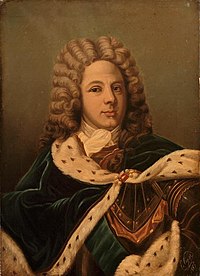Louis
XIV: How did Louis XIV become the epitome of absolutism?
From
a young age, Louis XIV had a fear of the nobility as the Fronde often spent
time in his room in an attempt to keep him and his mother safe from the
numerous outside threats. The freaks in his bedroom caused Louis XIV to resent
these aristocratic men that encroached on his privacy as a young child and
caused him everlasting humiliation.
Louis
XIV is called the “Sun King” because of the grandeur of his court and cultural
brilliance evident in every aspect of French culture. Louis’ long reign and
unification of France under absolutist forms of rule contributed to his
legendary status.
Receiving
a practical education, Louis studied state papers and attended government
meetings and courts in which Louis could learn foreign policy and receive
authentic experience. Louis was raised with the belief that God had established
earthly rulers in the form of kings. Because of the scarring experiences of his
youth, with the weirdos in his home, Louis remained isolated, cautious and
secret, all of which allowed his absolutist regime to become so successful.
Louis
XIV is known for his “complete domestication of the nobility”, where he
eliminated the pre-existing power threat of the aristocratic class of French
society. In doing so, Louis XIC received complete control over the monarchy and
governing of France. Louis did so through the peaceful means of cooperation
between the nobility and the monarchy. An example of such cooperation is seen
in the treatment of the province of Languedoc where Louis persuades the lords
to support the construction of the Canal des Deux Mers or a canal that linked
the Mediterranean Sea and the Atlantic Ocean. Because of this, the provincial
business added to national business. As a result of cooperation, Louis won the
increase of military taxation. While Louis won increased military taxation from
the Estates of Languedoc as he granted the nobility of France privileged social
status and increased access to the king. The French government under Louis XIV
was one that relied heavily on this historical social structure where the
nobility had power.
Louis
XIV used Versailles, the town in which he established his royal courts, as a
power play, forcing all nobility to come live with him there in luxury for a
set amount of time. Versailles was a property of grandeur, vastness and
elegance with intricate detailing in ever part of the mansion. The Hall of
Mirrors is the best-known historical room within Versailles. The King used the
expected awe that came upon living in Versailles to distract the nobles and
other visitors. In this way, Versailles can be considered a “reflection of
French genius.”
Louis
XIV weakened the nobles by using the court ceremonials in which, by excluding
them, he weakened their ancient right to advise the king and to participate in
government. Nobles became instruments of royal policy. Social events that
flaunted the noble’s status took up their time and attention instead of
governmental concerns. Through Louis’ actions, he reduced the persistent threat
to the monarchy by separating power from status without the nobles noticing. In
doing so, he achieved their cooperation and content.
Through
his entire reign as King, he never called a meeting of the Estates General, therefore
avoiding any connection or potential gain of power from the nobility. The
relationship between Louis XIV and the nobles was one of a superficial basis.
Without the influence of the nobility, Louis XIV had absolute power over
France. Louis XIV had “ninety-nine problems but absolutism ain’t (wasn’t) one!”
The
Pasta Eater:
The Pasta Eater by Luca Giordano was a
painting that was exemplary of Louis the XIV’s rule. Louis the XIV was getting
his power without he fork of the nobility. The pasta can be considered
governmental power, so without the use of the nobility (the rich used forks) he
devoured the pasta that made his rule grow to be of the absolutist nature that
it is known for.
Thanks guys!
Franny <3


















